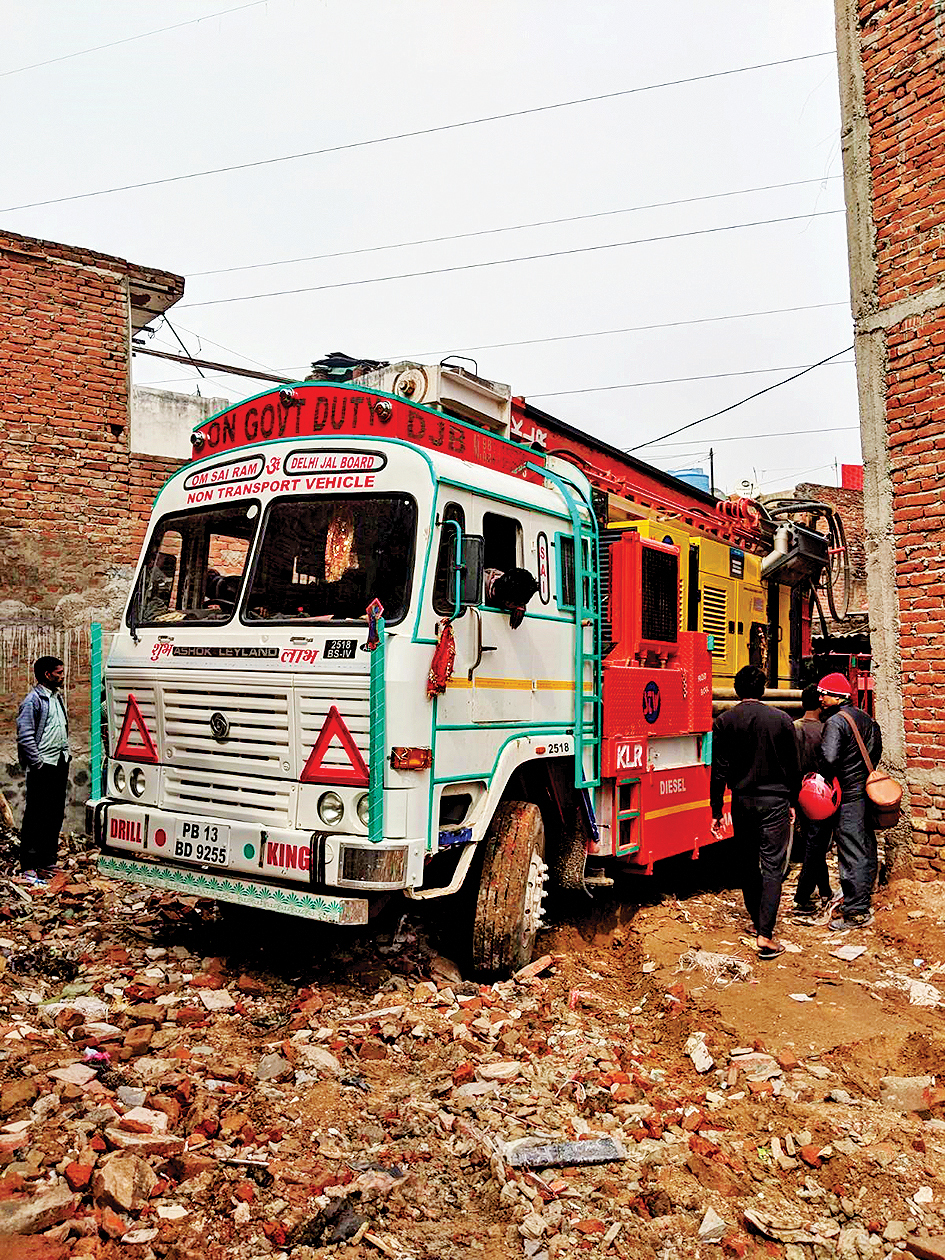
A usual day in the urban slums of India and Pakistan starts with uncertainty among residents, as they wait for the arrival of the Jal Board tanks, which have the task of distributing water in the areas. On fortunate days, when the trucks do arrive, after a wait of around two hours, the gathering turns into a fight club as people await their turn for the water pipe.
“There is a huge shortage of water. We don’t know if the water that comes is clean, but we don’t have many options. The water tank comes only once a week and even that is not for sure,” says Afsana, a resident of Sangam Vihar.
As per a report published by The Energy and Resources Institute (TERI), a shocking 163 million people in India, struggle to attain their constitutional right to safe drinking water (Article 27) (1)(b)., even after 73 years of independence.
A similar crisis resonates in Karachi (Pakistan), despite Article 9 of its Constitution, which reserves the right to water for all. The World Bank categorises Pakistan as a severely water stressed country.
With the increase in unchecked urbanisation in India and Pakistan, lack of water is a major issue in cities. The Composite Water Management Index (2018) states that Delhi will run out of groundwater by 2020. The unregulated slums in these metropolitan cities — like the slums in Sangam Vihar (New Delhi) and Orangi Town (Karachi) — end up bearing the brunt of unequal distribution of water. As a result, the residents of these colonies are forced to depend on illegal tankers. The residents of Karachi pay the equivalent of $21 a month for water, whereas in Delhi, residents pay close to $7.
One of the major reasons for this existential crisis is the wastage of water that occurs across the major metropolitan cities in developing countries. As per reports by NITI Aayog (2017), 40% of Delhi’s total water is lost due to pipe leaks. The water supply system is old and the broken pipelines are left to rot due to negligence by municipal corporations.
Karachi’s water economy too, is threatened by the city’s mismanagement. “Karachi requires its water supply network to be maintained. Leakage of water, which causes gallons of water going to waste, needs to be avoided,” says Dr Noman Ahmed, Dean, Faculty of Architecture at NED University, Karachi.
While the water resources near depletion, the populations of Delhi and Karachi seem are at an all-time rise which, in turn, means that the city is producing lesser water and more consumers. S K Goyal, Head of the Council of Scientific and Industrial Research-National Environmental Engineering Research Institute (NEERI), New Delhi, stresses on the effective utilisation of water.
He points out that most upper class urban households in Delhi and Karachi, use RO purifiers that generate huge amounts of wastewater. “Reusing reject-water can cut down the city’s fresh water requirement to a great extent. We need to make our citizens aware of budgeting water consumption at each level and treating sewage water, only then can this dire crisis be tackled,” he says.
In most urban slums across borders, shopkeepers fill unsealed plastic bottles and sell them as ‘Bisleri’. The residents are forced to rely on illegal water tanks and these ‘Bisleris’ due to the deplorable quality of groundwater. Report by the World Bank (2019) states that poor groundwater quality and lack of wastewater treatment cause water-borne diseases that kill 110 children in Pakistan every day. “Our kids fall ill every day after drinking this saline water, the water trucks demand huge bribes. It has been five years since we last saw clean water,” says Mumtaaz, mother of three and resident of Orangi Town.
Kanhaiya, Sangam Vihar resident and father of two, worries about his children who end up visiting the doctor more than their classrooms due to frequent water infections.
Both Delhi and Karachi seem to be in a similar spiraling crisis, with the irregularity of tankers, unclean pipeline water, daily fights due to shortage of available water, business opportunities for plastic tanks and Bisleri bottles and people having to wait for number of hours every day, disrupting their lives.
“In order to meet the challenges, there needs to be a shift in the way we manage urban water systems.Integrated Urban Water Management approach must be adopted by these cities which involves managing freshwater, wastewater, and stormwater, using an urban area as the unit of management,”says Qazi Syed Wamiq Ali, Research Associate, TERI, India. Ali’s call to action must raise concerns amidst the governments and the citizenry.
Now is the only time left to act upon this humanitarian crisis before it becomes another lost battle for India and Pakistan.
Analysis by Centre for Research on Energy and Clean Air shows Delhi had its worst…
Delhi Police have arrested two men for the alleged revenge killing of a 17-year-old boy…
Delhi government launches an electric double-decker bus tour linking key landmarks to boost tourism, with…
From Old Delhi rooftops to elegant dining spaces, these five Delhi spots offer authentic, comforting…
Delhi Police arrested a 22-year-old woman for allegedly supplying mule bank accounts to an interstate…
ED says its excise policy money laundering probe is independent and backed by credible evidence,…